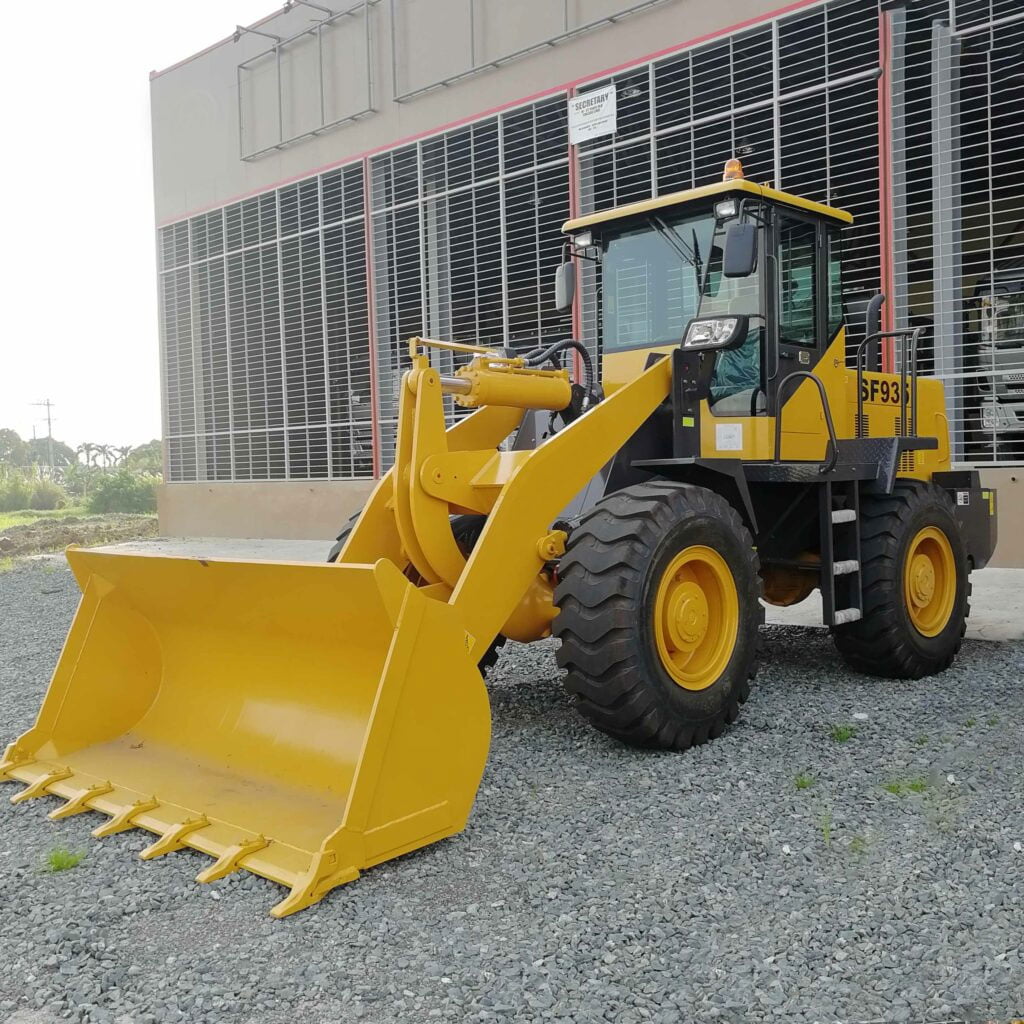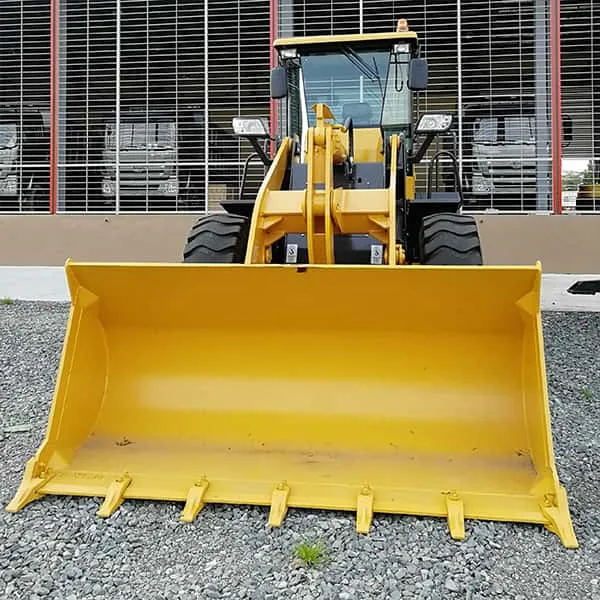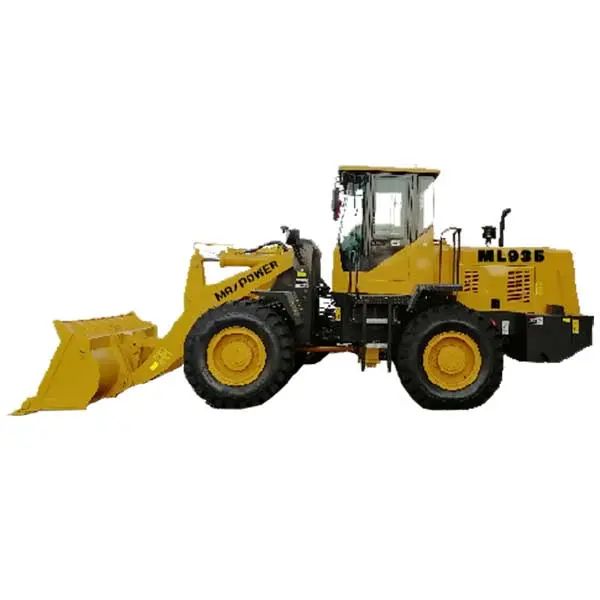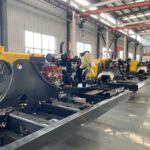Introduction
When it comes to construction and heavy lifting, the right equipment can make all the difference. Case wheel loaders are renowned for their versatility and reliability, but with a range of sizes available, selecting the one that fits your specific needs can be a daunting task. This guide will help you navigate through the different case wheel loader sizes, their applications, and how to choose the one that’s right for your job.
Understanding Case Wheel Loader Sizes

Case wheel loaders come in various sizes, typically categorized by their operating weight or engine horsepower. The sizes can vary from compact loaders for tight spaces to large models designed for heavy-duty applications.
Size Categories
- Compact: Ideal for confined areas and light-duty work.
- Moyen: Versatile and suitable for a wide range of tasks.
- Grand: Designed for heavy lifting and demanding jobs.
Applications Based on Size
The choice of wheel loader size is often dictated by the nature of the work. Here’s a breakdown of typical applications for each size category:
Compact Loaders: Landscape gardening, construction site cleanup, and light material handling.Our team of experienced professionals is here to provide top-notch services for all your outdoor needs. Whether you need a beautiful garden design, a clean construction site, or help with moving materials, we have the skills and equipment to get the job done efficiently and effectively.
Medium Loaders: General construction, earthmoving, and medium-scale material handling.Our team of skilled professionals is equipped to handle a wide range of projects, from building construction to excavation and grading work. With our fleet of specialized equipment, we can tackle medium-scale material handling tasks with precision and efficiency.
Large Loaders: Heavy construction, large-scale earthmoving, and heavy material handling.We specialize in providing top-notch equipment and skilled operators to tackle any project, no matter how challenging. Our commitment to safety, efficiency, and quality ensures that your job is completed on time and within budget.
Comparative Table of Case Wheel Loader Sizes
Below is a table comparing different Case wheel loader sizes based on their weight, horsepower, and suitable applications:
| Size Category | Operating Weight (lbs) | Engine Horsepower | Suitable Applications |
|---|---|---|---|
| Compact | Up to 10,000 | Up to 74 HP | Light-duty work |
| Moyen | 10,001 to 20,000 | 75 to 150 HP | General construction |
| Grand | Over 20,000 | Over 150 HP | Heavy-duty applications |
Factors to Consider When Choosing a Loader
When selecting a Case wheel loader, consider the following factors:
Job Requirements: The nature and scale of the work will influence the size and capabilities of the loader needed.
Maniabilité: Compact loaders offer better maneuverability in tight spaces.
Capacité de levage: Larger loaders have a higher lifting capacity, suitable for heavy loads.
La consommation de carburant: Smaller loaders are generally more fuel-efficient.
Budget: Larger models are typically more expensive to purchase and operate.
Benefits of Choosing the Right Size Loader
Selecting the appropriate Case wheel loader size offers several benefits:
Optimized Performance: The right size ensures the loader can perform at its best for the task at hand.
Rentabilité: Choosing a loader that matches your job requirements can lead to lower operating costs.
Sécurité: A properly sized loader can reduce the risk of accidents due to overloading or instability.
Resale Value: Loaders that have been well-matched to their work tend to retain their value better.
Challenges in Selecting the Right Loader Size

Choosing the right wheel loader size comes with its own set of challenges:
Initial Cost: Larger loaders can have a higher upfront cost.
Operational Costs: Larger models may have higher fuel and maintenance costs.
Overloading: There’s a risk of selecting a loader that’s too small, leading to overloading and potential damage.
Solutions to Common Challenges
To overcome these challenges:
- Cost-Benefit Analysis: Weigh the initial and operational costs against the benefits of the loader’s performance.
- Leasing Options: Consider leasing a larger loader for heavy-duty work if the upfront cost is a concern.
- Proper Training: Ensure operators are well-trained to avoid overloading and to maximize the loader’s capabilities.
Conclusion: Case Wheel Loader Sizes
Choosing the right case wheel loader sizes is crucial for maximizing efficiency, safety, and return on investment. By considering job requirements, maneuverability, lifting capacity, fuel efficiency, and budget, you can select a loader that will serve you well on the job site. Remember, the right size matters when it comes to getting the job done right.
FAQ
Q: What is the most important factor in choosing a wheel loader size?
A: The most important factor is the specific job requirements, as they dictate the size and capabilities needed.
Q: Can a compact wheel loader handle heavy-duty work?
A: Compact loaders are not designed for heavy-duty work and may become unstable or get damaged if overloaded.
Q: Are larger wheel loaders always more fuel-efficient?
A: Not necessarily. While they can handle more work, their fuel consumption is generally higher due to their size and power.
Q: How does the size of a wheel loader affect its resale value?
A: Loaders that have been appropriately matched to their work tasks tend to have a better resale value as they are less likely to have been overworked or misused.
Q: What are some common mistakes to avoid when choosing a wheel loader size?
A: Common mistakes include choosing a loader that is too small for the job (leading to overloading) or too large (resulting in unnecessary costs). It’s also important to avoid selecting a loader based on price alone without considering its suitability for the intended tasks.







-150x150.webp)
